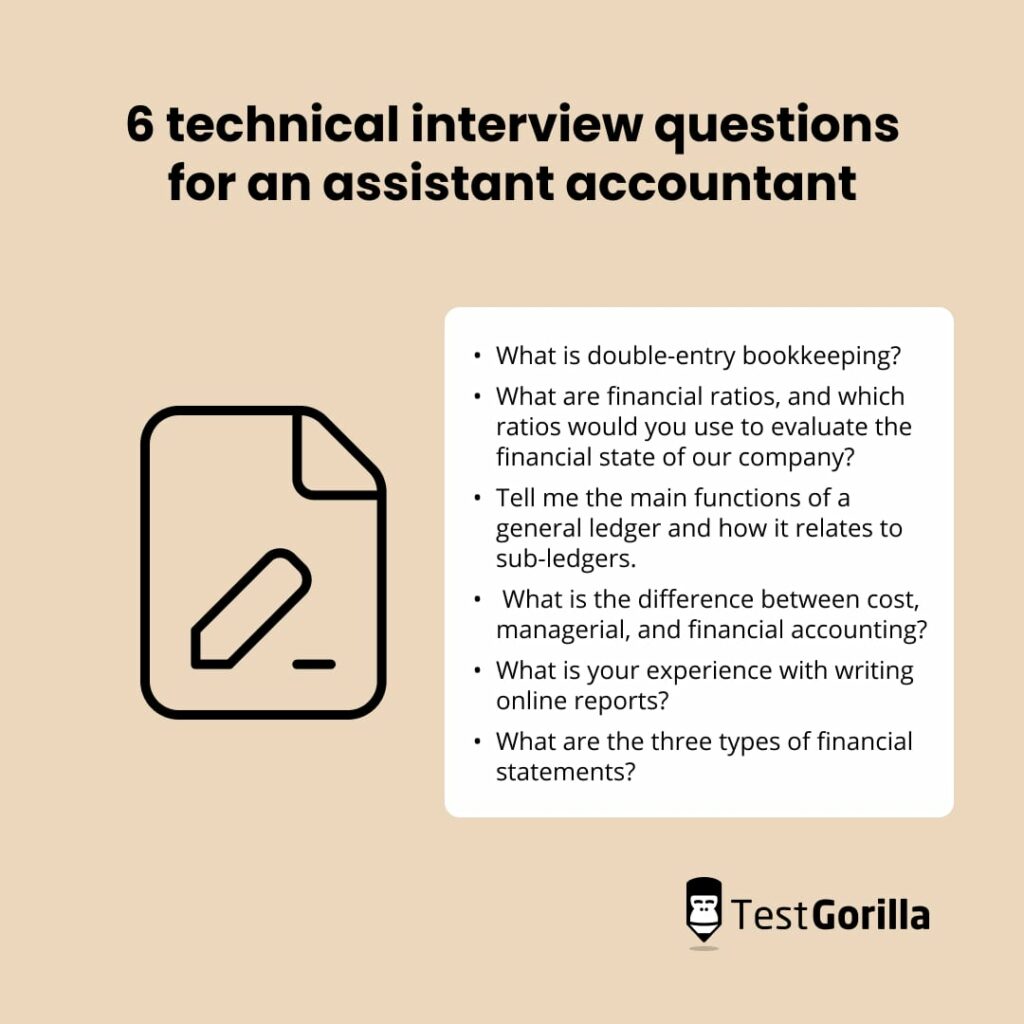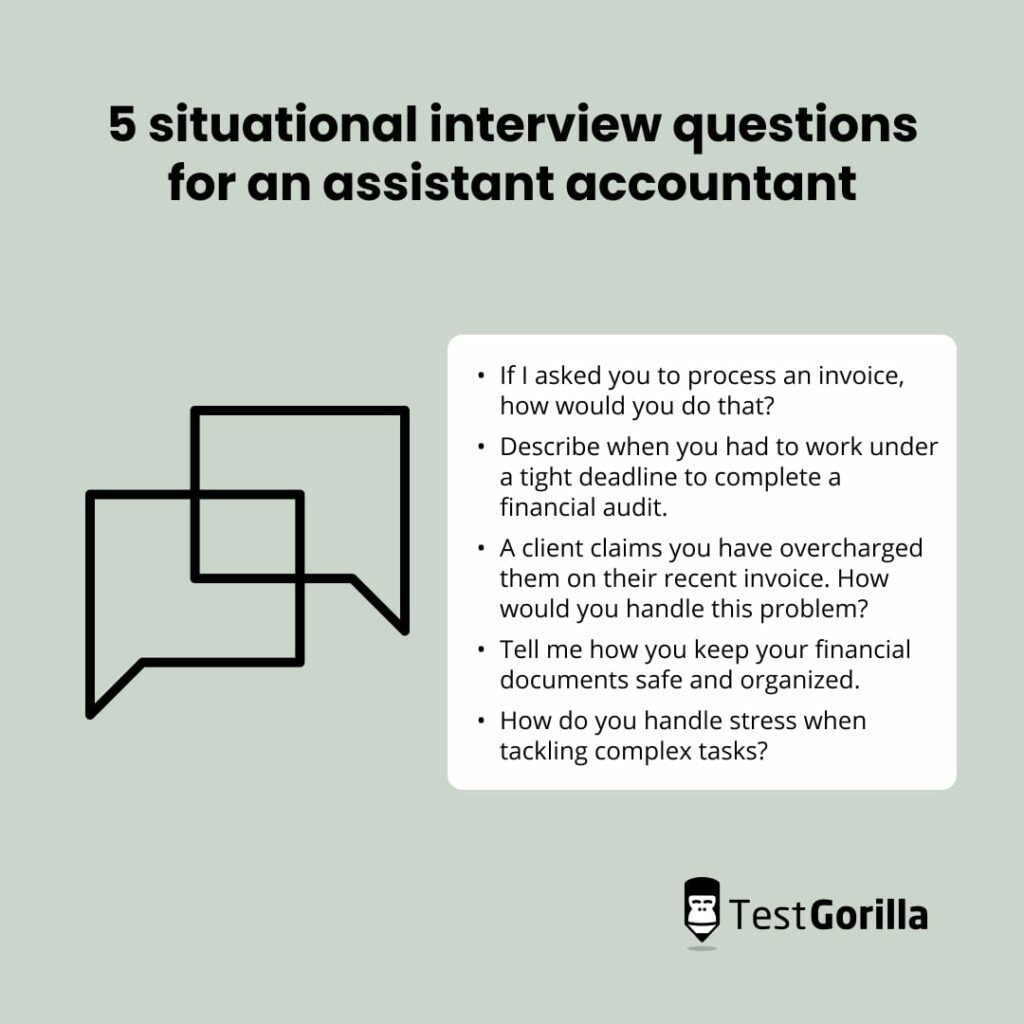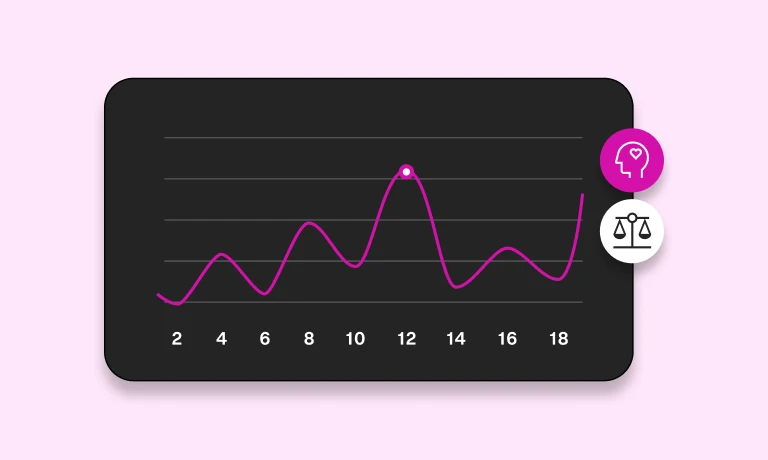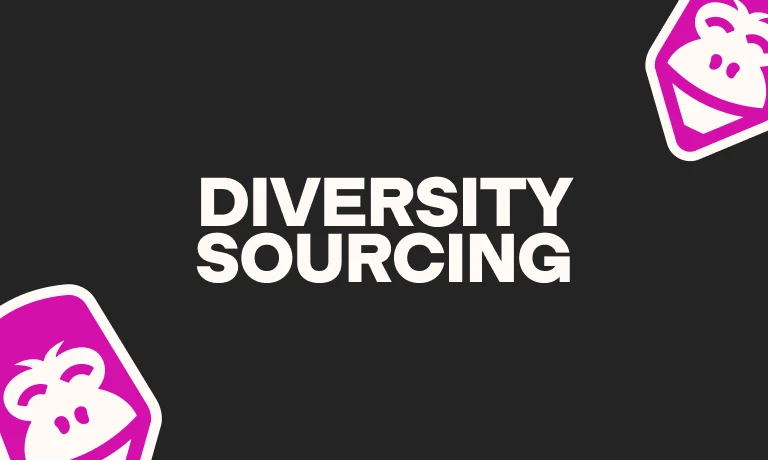60+ assistant accountant interview questions to ask job applicants
Assistant roles usually require less experience and skills, but hiring a candidate who understands the accounting field is still important. They must show great awareness of accounting tasks and know how to assist senior managers with clerical tasks in the office.
You can assess entry-level candidates by using an Accounting (Intermediate) test. This assessment will help you determine which job applicants have the financial knowledge and technical skills to succeed in the accountant role. For those evaluating candidates for roles that may progress to more complex international financial reporting, the Advanced Accounting (IFRS) test offers a deeper assessment.
But asking candidates the right questions is important. Here are 60+ assistant accountant interview questions and sample answers to help you hire the right candidate.
Table of contents
- 25 frequently asked assistant accountant interview questions for candidates
- 8 sample answers to frequently asked assistant accountant interview questions
- 20 technical assistant accountant interview questions to test job applicants
- 6 sample answers to technical assistant accountant interview questions
- 18 situational assistant accountant interview questions to ask professionals
- 5 sample answers to situational assistant accountant interview questions
- When should you use assistant accountant interview questions in your hiring process?
- Find potential employees using our skill tests and assistant accountant interview questions
25 frequently asked assistant accountant interview questions for candidates
These frequently asked assistant accountant interview questions will help you learn more about candidates’ accounting knowledge, computer skills, and behaviors.
1. What has been your most complex assignment?
2. Where do you see yourself in five years?
3. What is deferred revenue expenditure? Give me some examples.
4. What made you choose accounting as your career?
5. How do you usually manage your workload?
6. Tell me how you stay up to date with accounting standards and regulations.
7. What is the difference between a trial balance and a balance sheet?
8. Name some of the most common errors in accounting.
9. Do you have experience training others on accounting practices?
10. Tell me how you would design a spreadsheet to track daily cash receipts.
11. How will this role help you to develop your accounting skills?
12. What is the difference between auditing and accounting?
13. Define “book value” in accounting.
14. Name the differences between cash flow and fund flow statements.
15. How do you feel about creative accounting?
16. Are you comfortable communicating with clients and other departments in our company?
17. What are the steps involved in the accounts payable process?
18. Describe the differences between a ledger and a journal.
19. Tell me why the accounting equation has to balance.
20. What characterizes a great accounting assistant?
21. Are you willing to complete training for this role?
22. Define credit notes and debit notes.
23. What are the main accounting concepts?
24. Tell me more about your math and computer skills.
25. What is your process for preventing mistakes at work?
8 sample answers to frequently asked assistant accountant interview questions
Use these sample answers to common assistant accountant interview questions when reviewing your candidates’ responses.
1. What is deferred revenue expenditure? Give me some examples.
Assistant accountants will usually need to help senior managers with finances. Therefore, it’s important that candidates understand financial terms and how to calculate specific expenses in your company.
Deferred revenue expenditure is the money spent in one accounting period.However, the effect of those expenses occurs over future accounting periods. One example is an advertising campaign package. Your company may pay the cost of this package upfront, but it won’t take immediate effect until the marketing team updates and releases the campaign.
2. What are the steps involved in the accounts payable process?
Accounts payable (AP) is a short-term debt where a company owes money to vendors or suppliers. These payables appear on a balance sheet, which most assistant accountants write for liability documentation.
The accounts payable process involves a few steps for posting the expenses to the correct account. Candidates should explain how they would manage this process..
To complete the AP process, accountants must:
Receive the purchase order: Accountants need a commercial source document to validate written authorization from a vendor. This document covers the type of goods, total cost, and quantity.
Accept an invoice from the vendor: The collect payment represents how much the company owes for the goods. An invoice allows the sale transaction containing the agreed prices to go through.
Match the purchase order and invoice: Before sending any payment, the accountant must compare the buying order and invoice to ensure costs, goods, quantity, and dates match.
Approve final payment: The company can send the full payment to the vendor’s account.
Record the transaction: Accountants must note the transaction to keep finances organized systematically. Vendors can also request payment information at any time.
You can give candidates an Accounts Payable test to see how they manage different accounts and maintain important records or use our selection of the best accounts payable interview questions during the interview.
3. Do you have experience training others on accounting practices?
Research suggests that employees learn 20% of their skills from other team members. Therefore, candidates should feel comfortable helping others in the accounting team. Even though most job applicants will be entry-level, they should still understand basic financial terminology and practices.
Candidates with training experience may talk about their coaching processes and ability to support others.. Being able to lead is one of the best traits a potential employee can have.
If you want to discover which candidates have leadership potential as well as accounting skills, you could use our Leadership & People Management test to determine which candidates have the skills and knowledge to improve in your company.
4. Tell me more about your math and computer skills.
Assistant accountants must have computer and mathematical skills to complete their duties successfully. These skills are essential in accounting because most tasks require the ability to use financial software.
You can test a candidate’s ability to think fast by asking them a simple math equation or providing them with general algebra questions regarding business assets.
To better understand candidates’ mathematical skills, you could give them a Financial Math test before the interview. During the test, they will answer scenario-based questions related to profit maximization and internal rates.
5. Name some of the most common errors in accounting.
Everyone makes mistakes, even experienced senior managers.. Beginner candidates are more likely to make errors because they are still learning and adapting to accounting practices.
However, they should still understand common mistakes that can be made in financial tasks, in order to prevent inaccuracies when handling critical information.
Some of the most common errors in accounting include:
Data entry blunders: These basic accounting errors occur when the accountant enters the wrong information or uses transposed decimals, numbers, and letters. Most of these errors stem from rushing through a task, lack of attention to detail, or incorrect software automation.
Errors of omission: Accountants may accidentally miss a transaction and forget to put it in the company’s accounting records. Partial omission means the transaction is in the subsidiary books, but the accountant hasn’t posted it to the company’s ledger.
Errors of principle: These technical errors mean the accountant has gone against what is known as the Generally Accepted Accounting Principles (GAAP). For example, confusing debits and credits, orr debiting the wrong client account.
Error of commission: This error means accountants record a debit or credit to the correct account but to the wrong ledger or subsidiary account.
6. What is the difference between auditing and accounting?
The ideal candidate should know the difference between auditing and accounting. These are basic accounting functions that focus on preparing financial documents. Auditing refers to verifying an organization’s financial statements… Auditors must match the statements with the GAAP mentioned above..
Accounting, however, is the process of financial reporting and tax filing. An accountant may work for an accounting firm, or private or public companies when documenting important transactions.
Learn more: See how talent assessment help finance organizations find the most skilled candidates for accounting positions
It may be a good idea to give candidates an Accounting Terminology test before the interview to better understand their knowledge of accounting. Those who don’t have much experience should still know what financial statements, balance sheets, and books of accounts mean in the accounting industry.
7. Tell me how you would design a spreadsheet to track daily cash receipts.
. Beginners may choose to provide the basic steps of how they would create a spreadsheet, while accounting professionals will already have experience in this area..
A daily cash receipt proves that your company has made a sale. It holds details regarding external transactions and cash records on a balance sheet, and these receipts ensure cash flow and profits match. To make a spreadsheet, accountants must create a table containing the following components:
The name and address of the company receiving the payment
The name and address of the individual making the payment
Date of payment
A receipt number
The total expenses
Reasons for payment
Type of transaction (credit card, cash, etc.)
Accountants often use software such as Microsoft Excel or Google Sheets to document this information. Candidates can be given a General Microsoft Excel skills test or a Google Sheets test before the interview to prove they can perform basic calculations and create tables on a spreadsheet.
8. How will this role help you to develop your accounting skills?
Candidates should have personal development goals to succeed in your company. Some of these goals may include more training to develop their accounting skills, or other job-related skills.
The ideal candidate will discuss your open position and how it can encourage them to expand their knowledge of financing and auditing. For example, using software designed for financial reporting can help to develop other skills such as written communication, time management, and organization.
The best insights on HR and recruitment, delivered to your inbox.
Biweekly updates. No spam. Unsubscribe any time.
20 technical assistant accountant interview questions to test job applicants
Below are 20 technical assistant accountant interview questions to better understand candidates’ computer knowledge and accounting capabilities.
1. How would you handle an audit or discrepancy?
2. Which accounting software do you have the most experience with?
3. What is owner’s equity? How will you calculate it?
4. What is double-entry bookkeeping?
5. Tell me the main functions of a general ledger and how it relates to sub-ledgers.
6. What is the difference between cost, managerial, and financial accounting?
7. What are bills receivable and bills payable?
8. How would you evaluate the reliability of financial information?
9. Talk me through the steps of creating a bank reconciliation statement.
10. Have you ever implemented a new accounting software system?
11. What are financial ratios, and which ratios would you use to evaluate the financial state of our company?
12. Name some effective online and offline channels for locating potential clients.
13. How do you pass a journal entry for a buying order in books of account?
14. Can you simplify and explain complex financial information to others?
15. What are the three types of financial statements? Explain them.
16. Name a few common budgeting methods.
17. Explain the concept of accrual accounting versus cash accounting.
18. What strategies do you use to estimate bad debt?
19. Name some strategies for monitoring fraud and handling security.
20. What is your experience with writing online reports?
6 sample answers to technical assistant accountant interview questions
Refer to these sample responses to technical assistant accountant interview questions when choosing a candidate..
1. What is double-entry bookkeeping?
Double-entry bookkeeping is an accounting method that records important transactions in two or more accounts. This process can reduce errors and ensure the accounting books balance.
Assistant accountants should have bookkeeping skills, as they may also use this method to check information in the future when calculating any yearly profits and expenses.
Consider sending candidates an Account Management test to see how they forecast revenue and manage accounts.
2. What are financial ratios, and which ratios would you use to evaluate the financial state of our company?
Financial ratios are calculations accountants use to obtain quantitative data from the company’s invoice statements. They provide valuable insights into liquidity, solvency, leverage, turnover, profitability, and efficiency. An assistant accountant usually monitors important data to see how the company has performed over a period of time.
In terms of evaluation, the ideal candidate will suggest measuring cash assets, debt obligations, operating margins, and net profits.
3. Tell me the main functions of a general ledger and how it relates to sub-ledgers.
A general ledger refers to a record-keeping system that stores financial data. It validates debit and credit account records using a trial balance. In a general ledger, accountants can see every financial transaction the company has made, including accounts for assets, owners’ equity, liabilities, expenses, and revenues.
On the other hand, sub-ledgers show the sub-set of transactions that contain accounts receivable (AR) and accounts payable (AP) on a single chart.
4. What is the difference between cost, managerial, and financial accounting?
Beginners and senior candidates should understand these branches of accounting. They each have a simple term that relates to common accounting processes.
Here are the key differences candidates might mention:
Cost accounting: The accountant measures all incurred costs in the company to improve internal management. They might also calculate fixed costs associated with producing specific products or resources.
Managerial accounting: Senior managers and assistants can create financial statements, reports, and documents to encourage higher management to make better decisions in the company.
Financial accounting: This specific branch records and summarizes important transactions. Accountants mainly focus on the company’s financial health by evaluating profits and expected revenue.
Use a Financial Management test to determine whether candidates can manage your company’s short- and long-term finances.
5. What is your experience with writing online reports?
Accounting reports hold information regarding a company’s past and present financial state. When writing an online report, accountants must cover business operations, cash flow, total net income, accounts receivable, and accounts payable. Even if candidates don’t have experience, they should know how to create these statements using simple software.
A Communication test will tell you which candidates have the most advanced written communication skills. The test is crucial because your accountants must know how to convey critical information in an online report and be able to prove it.
6. What are the three types of financial statements? Explain them.
Assistant accountants will manage financial statements in your company. Therefore, hiring someone who can handle critical information without making errors or losing files is essential.
The three types of financial statements include:
Income statement: This document shows the company’s revenues and expenses over a specific period. It can determine whether specific products are generating profits or causing financial loss.
Balance sheet: Accountants will create a balance sheet to compare assets, liabilities, and shareholder equity throughout the year. They can present the information to higher management to help them make better decisions.
Statement of cash flows: A cash flow statement outlines the expenses and cash equivalents entering and exiting the company. This information will usually cover a specific month or year.
18 situational assistant accountant interview questions to ask professionals
We have put together a list of 18 situational assistant accountant interview questions. You should choose questions that will give you insight into a candidate’s personality traits.
1. You find a discrepancy in the balance sheet while reconciling accounts. How would you identify the root cause of the problem?
2. While preparing some financial statements, you notice that the company has undervalued one of the assets. How would you resolve this issue?
3. Describe a time when you had to work under a tight deadline to complete a financial audit.
4. How would you communicate this with your manager if you failed to meet a deadline?
5. Tell me about when you had to prepare financial reports for a complex project. How did you approach the task? What was the outcome?
6. You’re reviewing ledgers that another accountant completed and notice an issue. What would you do?
7. A client claims you have overcharged them on their recent invoice. How would you handle this problem?
8. You have incorrectly authorized a payment. Talk me through how to resolve this problem when speaking to higher management.
9. If I asked you to process an invoice, how would you do that?
10. What steps would you take if you noticed suspicious activity in a ledger?
11. How do you handle stress when tackling complex tasks?
12. Describe a time when teamwork was necessary for completing a major project. How did you approach the collaboration?
13. You make a mathematical mistake in your work. What do you do next?
14. Tell me how you keep your financial documents safe and organized.
15. How do you promote teamwork and collaboration in the workplace?
16. How do you stay motivated while doing repetitive tasks?
17. Describe a time you reduced costs for a company.
18. How do you ensure all information is correct in a financial statement?
5 sample answers to situational assistant accountant interview questions
When reviewing candidates’ responses, use these sample answers to situational assistant accountant interview questions.
1. If I asked you to process an invoice, how would you do that?
Processing an invoices is one of the simpler tasks in accounting. This type of commercial document requires accurate information since vendors expect a correct payment. Therefore, candidates should know how to process invoices when managing finances for your company.
Common steps for processing an invoice include to:
Receive the invoice from a vendor: Suppliers or vendors will send an invoice regarding your services and payment. This invoice is usually a digital document that assistant accountants process through a dedicated software program.
Scan the invoice into a filing system: Accountants must copy and scan the invoice into electronic storage. Keeping a separate document maintains proper audit procedure and backs up potential case discrepancies after final payment.
Gain approval for the invoice: Those with higher authority in the company will approve the invoice.
Authorize the invoice payment: Accountants then send the correct payment to the vendor or supplier. Sometimes, another senior accountant checks that the payment has gone through properly.
2. Describe when you had to work under a tight deadline to complete a financial audit.
Beginner candidates may not have enough experience with financial audits, but they can still tell you the steps to meet tight deadlines. One effective way to do this is to prioritize tasks in the morning to help with motivation.
First, the candidate gathers the financial statements and checks if everything is correct. The next step involves conducting substantive evidence procedures to validate crucial information.
Research suggests that more than 33% of employees write to-do lists. This method is common, and stops an accounting team from getting overwhelmed.
Send candidates a Time Management test to see how they organize their accounting tasks and reach deadlines.
3. A client claims you have overcharged them on their recent invoice. How would you handle this problem?
Candidates may face discrepancies in financial statements and invoices. This problem shouldn’t be common, but it can happen when something doesn’t hold the appropriate payment for vendors.
The best response is to recheck the invoice and evaluate the company’s services. Assistant accountants should also check with senior management to ensure the vendor isn’t mistaken. You can use the Accounts Receivable test to evaluate how your candidates manage errors in company’s incoming payments.
4. Tell me how you keep your financial documents safe and organized.
Many accounting processes use computer software or digital storage, so most accountants won’t have the risk of losing physical files. However, some accounting professionals still like to keep labeled folders in a file drawer.
A safe deposit box is also appropriate for maintaining organization, but it’s not the best way of managing financial documents. The ideal candidate will suggest project management programs such as eFileCabinet, Microsoft Sharepoint, and Rubex.
5. How do you handle stress when tackling complex tasks?
Stress is something many candidates will have to face. Accounting can be a demanding role and candidates must stay on track with projects, so they need to have stress-management strategies they can use.
For example, they might write their thoughts in a journal, or take time out to go for a walk to clear their mind. . Establishing boundaries with other team members also ensures they focus on completing challenging tasks.
To better understand your candidates, send them a Big 5 (OCEAN) personality test. This assessment evaluates their openness, conscientiousness, extroversion, agreeableness, and emotional stability in the workplace.
When should you use assistant accountant interview questions in your hiring process?
The best time to use assistant accountant interview questions is after skill tests. Using relevant skills assessments can help you narrow down your list of candidates quickly and efficiently.
Going straight into your interviews without testing could lead to bad hires and a slow recruitment process, as you may choose unskilled candidates. Skills tests are a useful tool to find the best applicant for your team.
It’s important to note that skill assessments also reduce unconscious bias, enhance employer branding, and address talent gaps in your company. By choosing suitable tests, you can hire professionals with the dedication and skills to join your accounting team.
Find potential employees using our skill tests and assistant accountant interview questions
Are you on the hunt for skill tests? Look no further – our test library has everything you need for a smooth hiring process.
You can search through 300+ skill assessments when looking for the next employee for your company. It’s as simple as choosing a test type and previewing the questions to determine whether it matches your expectations.
For more insight into how our skills tests are created, take a look at our science page.
If you’re eager to enhance your hiring process, use our Accounting (Intermediate) test and assistant accountant interview questions.
Sign up for your free plan today and start exploring our range of tests. Or, you can book a free 30-minute live demo with a member of our sales team and they will show you the benefits of our software, as well as answering any questions you may have.
You've scrolled this far
Why not try TestGorilla for free, and see what happens when you put skills first.




















